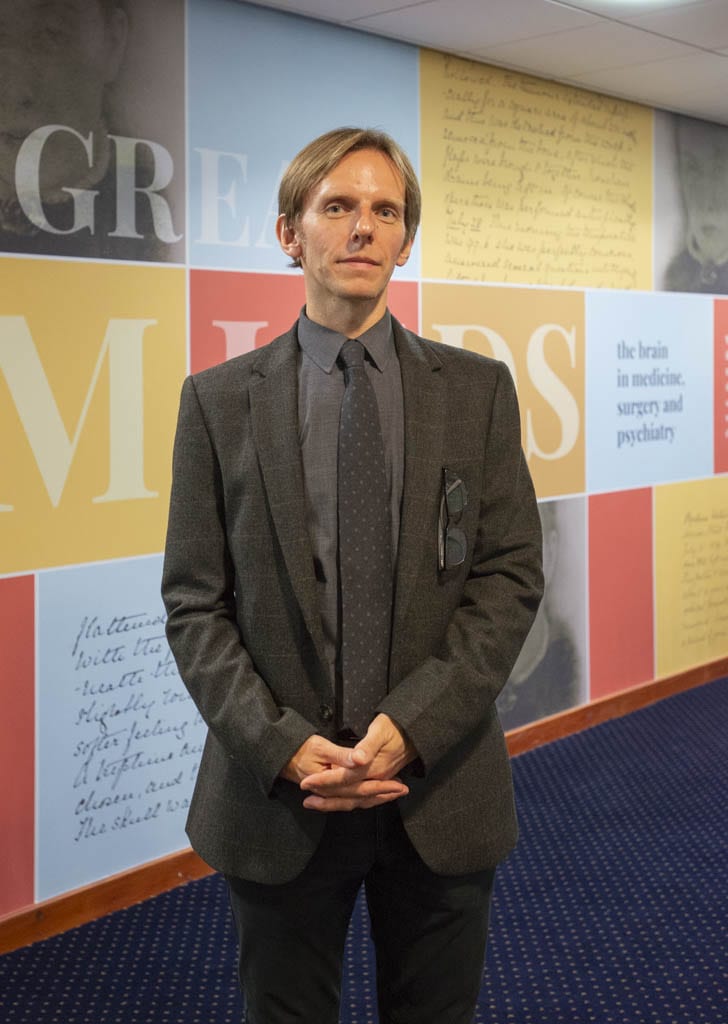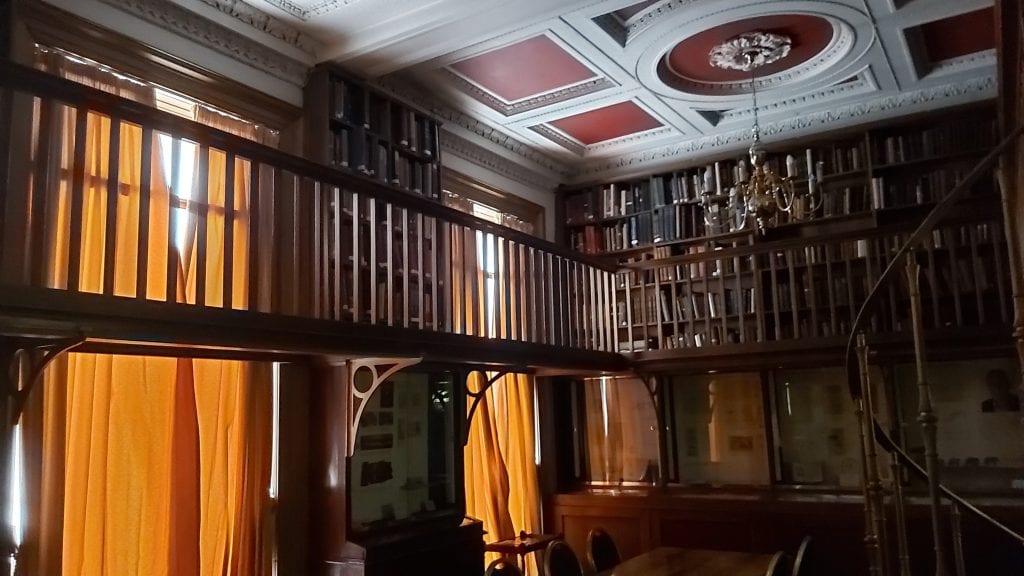The pandemic and the College’s Heritage
30 Jul 2020
In the latest edition of our membership magazine “voice”, our College’s Deputy Head of Heritage, Ross McGregor discusses how the work of our Heritage team has adapted during lockdown. A copy of this is below and College Members can read the full magazine by logging into their online dashboard account.

In the latest edition of our membership magazine “voice”, our College’s Deputy Head of Heritage, Ross McGregor discusses how the work of our Heritage team has adapted during lockdown. A copy of this is below and College Members can read the full magazine by logging into their online dashboard account.
While the life of the College has remained busy and dynamic during the COVID-19 pandemic and lockdown – supporting members and adapting to digital delivery of education for example – the College’s headquarters in the centre of Glasgow has closed its doors. The Heritage team’s job is to care for and provide access to the College’s amazingly rich history and collections, so much of which is connected to, and stored within, the buildings on St Vincent Street. So how have we dealt with this unexpected challenge?
The most important element of our role is to ensure our heritage is safe and preserved for future generations. So when it became clear that the country was about to enter a lockdown in mid-March 2020, the team had to quickly prepare the collections for a prolonged period of closure. This meant ensuring the College’s collections would be as safe as possible during an unspecified period of very limited monitoring or access.
In the collections stores (of which there are three) all work areas were tidied, with any material awaiting consultation or as part of work in progress returned to boxes and shelved. Vulnerable items were covered for additional protection. In our exhibition spaces, any rare book or archive material was closed over, covered, and lighting switched off. In our historic rooms, which contain books, instruments or artwork, all blinds and curtains were fully drawn to avoid unnecessary exposure to light and heat.
During the subsequent lockdown period we have been able to carry out regular visits to monitor conditions and check for any areas of risk to the collections. As always, we’re working closely with the Operations team who are also regularly checking security and safety issues within the buildings. It has been strange but comforting wandering the empty building to check on the collections we usually look after on a daily basis!

Working remotely
After hastily grabbing handfuls of key reference books to help us deal with enquiries and research, the team began to work from home. One of our priorities has been to continue to provide a digital library service to our fellows and members. This has included contributing to the College’s COVID-19 web pages, and continuously monitoring the constantly evolving range of pandemic-related information resources.
Enquiries continued to come to us via email, relating to our library services, our archive and museum collections, family history, and medical heritage more widely. While many enquiries require us to consult our physical collections, we have been able to access thousands of items in digitised format. This has made remote working much easier and more productive than it otherwise could have been.
Engaging people with our heritage
For the past four years the College has been strongly committed to providing digital access to its heritage. Digitisation and digital visualisation of our collections has become embedded in our heritage practice, and the College has been commended for its innovative and ambitious approach by national museum authorities. This approach enabled us to continue to engage people with our heritage in interesting ways during lockdown – fellows and members, academics, and the simply curious.
Our Heritage website contains around 1400 digitised collection items, and over 60 animations and digital 3-D models. It has been great to be able to share these collections as widely as possible. But we haven’t stopped there. The team continued to create and share new content from home, for example, our new bitesize heritage videos featuring Digital Heritage Officer Kirsty Earley explaining key parts of our collections in an accessible way. We shaped much of this content around social media campaigns such as #MuseumFromHome and #CultureInQuarantine, as museums and archives around the world joined together to provide access to heritage during difficult times.
Our approach to digital heritage will continue to evolve this year, as we continue to face uncertainty and limitations in physical access. We’re continuing to develop virtual access to our buildings and collections so that more people, in more places, can enjoy our history and participate in our heritage.
Preserving the pandemic experience
This has, and continues to be, a moment in history that will be looked back upon for generations to come. The pandemic has affected everyone, in healthcare and in our communities around the world. As heritage professionals we are acutely aware of the need to preserve a record of this time, to capture what it has meant for the College and for our community of fellows and members. So, one of our key priorities during the next nine months will be to ensure that the College’s response to the pandemic, from meeting notes to webinars, is preserved for future generations.
In addition, we are actively collecting material from our fellows and members that captures individual experiences of the pandemic. The College’s heritage has always been created by its community of fellows and members, whose working lives and experiences contribute so much to the legacy of this ancient institution. The pandemic will be another chapter in the story of the College, as told though its heritage collections.
Category: Engagement
Latest news and statements
Key priority areas
Topics
- Workforce
- Wellbeing
- Equality, Diversity and Inclusion
- Climate Change
- Health Inequalities
- College
- Obesity
- COVID-19
Archive
Key links
Tweets by @rcpsglasgow